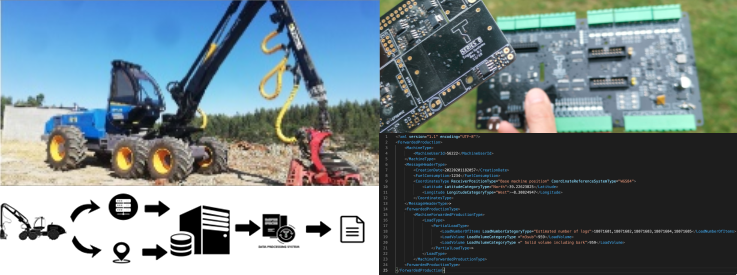Circular Economy
and Value Chains Results
Implementing sustainable Forestry 4.0 in Portugal
Logging refers to all operations related to the felling of trees, extraction and processing of woody material and other forest products, as well as their storage and transport to processing centers. These operations directly condition the profitability of the forestry activity and are therefore very important in the economic vitality of the forests, development of the territories and the environmental efficiency of the operations.
The planning of forest harvesting and supply chains from the forest to the processing plant is an area of multidisciplinary research, in the context of which advanced methodologies and tools have been developed to schedule operations more efficiently and also to support investment options in harvesting and transportation systems.
The automation of equipment and the use of sensors or other digital technologies are key aspects to achieve greater efficiency gains and sustainability in the processes.
Technical specifications were developed for a prototype of an integrated solution for forestry 4.0 in Portugal. This solution collects information about felling, extraction and roundwood processing operations from several types of sensors embedded in forestry equipment. It allows the tracking and quantification of wood volume and forest biomass and also a yield analysis along the supply chain. Finally, the solution is linked to an advanced planning system that allows monitoring all the information collected in a multi-user logic. Productivity and ecological sustainability indicators of the operations will be calculated. This information can be used to review the operating plans, namely the forecasts of wood flows throughout the chain and the allocation of equipment to operations, minimizing logistics costs, while also allowing for an improvement in the efficiency of machine operators.

Information Sharing between Machines and Supply Chain Entities
